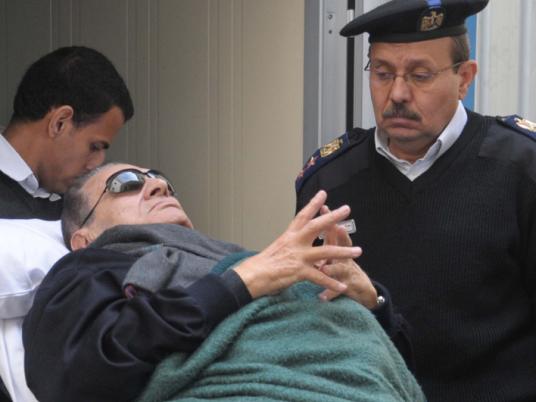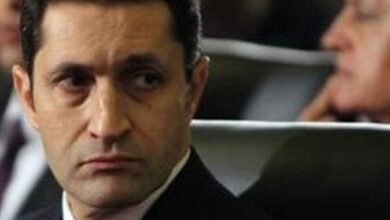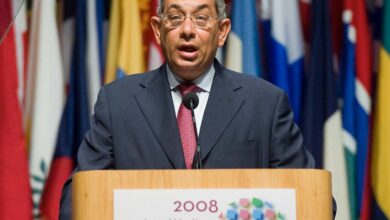
The trial for ousted President Hosni Mubarak has been adjourned to Wednesday after resuming Tuesday at the Cairo Criminal Court.
On Tuesday the court heard the prosecution's case, which is set to conclude on Thursday.
Mubarak, as well as former Interior Minister Habib al-Adly and six of Adly’s aides, faces charges of ordering security forces to fire on protesters during the 25 January uprising.
The former president, his sons Alaa and Gamal, and businessman Hussein Salem also stand trial on various corruption charges.
During today’s hearing, prosecutor Mostafa Suleiman said that Mubarak "created a corrupt regime that destroyed political life, and he devoted all of his efforts during the last decade of his reign toward his goal of transferring power to his son Gamal and rigging parliamentary and local elections."
Suleiman went on to say that “integrity and transparency went down the drain when the defendant [Mubarak] preferred his personal interests to the public."
"The adoption of corrupt economic policies led to price inflation,” he said. “The gaps and differences between the classes widened, Egypt’s international and regional role declined and it lost its place under the rule of this tyrant."
In the case of Adly, one prosecutor argued, "He created an autocratic security system and imposed his grip using corruption to serve the Mubarak regime, disregarding the people's interest."
He went on to say that Adly “used all means of oppression, followed faulty security policies, expanded the dominion of the security system by utilizing it for the benefits of the dissolved National Democratic Party, and devoted all police forces to prepare for the power inheritance plan."
A plaintiff lawyer specializing in civil rights told Al-Masry Al-Youm that the prosecution's case was nothing more than an introduction, which discussed the events of the uprising in a rhetorical manner without going into any legal details. He went on to say he expected tomorrow’s hearing to include details clearly related to the issue of the killing of protesters.
In a previous press statement, Khaled Abu Bakr, a plaintiff lawyer
in the case, predicted the trial hearings will go on an additional three
weeks and that a final ruling will be issued in March.
Prosecutors are demanding that Field Marshal Hussein Tantawi, head of Egypt's ruling military council, and his deputy, Chief of Staff Sami Anan, attend the trial to further discuss their previous testimonies.
On Monday, the court excluded from the trial plaintiffs for those killed in front of police stations during the uprising.
The trial reconvened last Wednesday after a three-month hiatus, but Cairo Criminal Court adjourned the hearings until Tuesday after the prosecution was asked to submit a list of those killed or injured since the beginning of the 25 January revolution, as well as reports and investigations regarding the killings.
Translated from Al-Masry Al-Youm




